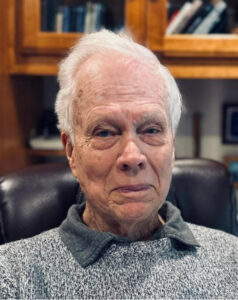The issue in dealing with earthquakes, such as those recently experienced in Turkey and Syria, is that there is a short-term plan but no long-term plan. The short-term plan calls for immediate search and rescue operations to save as many survivors as possible from the ruins of the collapsed buildings. This plan is well underway. However, a long-term plan needs to be more well-developed. A long-term plan would entail the creation and execution of standards for new buildings. These standards would allow future buildings to withstand earthquakes of the magnitude of those recently experienced and possibly even larger quakes.
One area for improvement in developing these standards is that they usually are written using engineering terms, such as pounds force. Standard, according to the National Institute for Standards and Technology (NIST), for example, shows building design loads in traditional engineering terms. The public, on the other hand, has grown accustomed to seeing earthquakes measured using the Richter scale named after its inventor, Charles Richter, and colleague Beno Gutenberg. Richter and Gutenberg devised this scale in 1935. According to USGS, the Richter scale is a logarithmic scale of earthquake damage, and a Richter magnitude of 8.0 would indicate an earthquake with major damage over a large area. Unfortunately, the original Richter scale of 1935 has since been found to be inaccurate and modified to correct the original inaccuracies.
These plans are crucial because many thousands have died, and more will die if these plans are not adopted. Unfortunately, there is little evidence that local governments have adopted the long-term plan. International cooperation will significantly assist them in their development.
The fundamental question is can earthquake standards enable structures, such as buildings, to withstand earthquakes of any magnitude normally measured by the Richter scale? According to the NIST, the level of control is called seismic performance. The next question is, what is the largest earthquake ever experienced? There is some difference of opinion on this subject. The United States Geological Survey (USGS) says it was the 8.6 quake in Northern Sumatra in 2005. The USGS also says that the Anchorage quake of 1964 was a magnitude of 9.4. So, it is unclear whether seismic performance measures can withstand these severe earthquakes. The answer will depend largely on such factors as building construction.
So, what was the magnitude of the Turkish and Syrian quakes? According to Reuters, the magnitude was about 7.8. If the Syria-Turkish quake was 7.8 and earthquakes as high as 9.4 have been recorded, it seems logical that seismic control of such a quake is within the realm of possibility. In the US, the 1906 San Francisco quake is still vivid in our memory, where it was revealed that more people died from the fires (over 3000) that ensued from the quakes than from the quakes themselves, according to Hansen and Condon (1989). According to CNN, the Tokyo earthquake of 1911 measured 9.0 on the Richter scale.
So, who is responsible for establishing earthquake control standards to be imposed? Traditionally, this task has fallen to the country’s local governments where earthquakes occur. Do the local governments have the capability of establishing these standards? Assuming that measures have been established in the past, it is reasonable to assume that future standards can also be established and that governments have the power to enforce them. The second question is whether these countries have sufficient engineering talent to establish these standards and create the mechanism to enforce them. Turkey and Syria have many engineers educated in the US and Europe. So, it can be assumed that both countries have the talent for creating standards and enforcing them so that this can be done.
So, the final question is whether the moral impetus exists to create and execute these standards. Turkey and Syria have seen that Western countries have rushed to aid the search and rescue effort. So, it must be evident to them that this is an international imperative and not a local issue and not just a search and rescue mission, but rather a mission to save the lives of all Turkish and Syrian people from the ravages of nature. It is hoped that this mission will become more apparent.
In the end, the Turkish and Syrian Building Codes project has more potential than just saving lives as building resumes in those countries; it has the potential for a more enlightened view of the task, not just to save lives but moreover, to heal one of the wounds that have arisen between our cultures.
_________________________________________________________________________________________________________________
 Scott Jackson, PhD
Scott Jackson, PhD
Scott Jackson is a research scientist with expertise in applied systems theory. He was formerly with the University of Southern California (USC) and the Missouri University of Science and Technology (MST). He is a Fellow of the International Council on Systems Engineering (INCOSE). He has published four books on systems engineering. He is currently a consultant for both Embraer of Brazil and Comac of China, offering advice on the use of systems theory in the design of commercial aircraft.



 Scott Jackson, PhD
Scott Jackson, PhD


